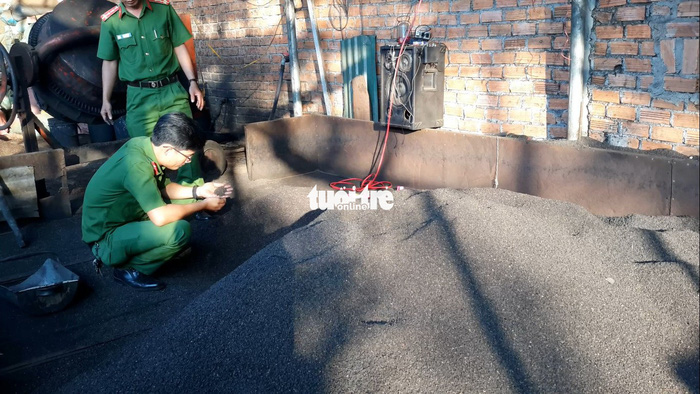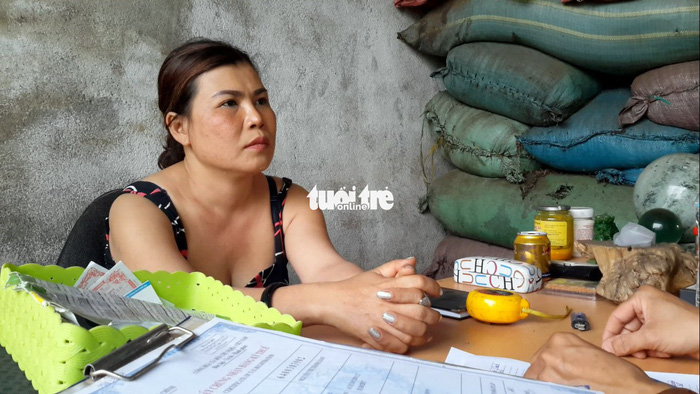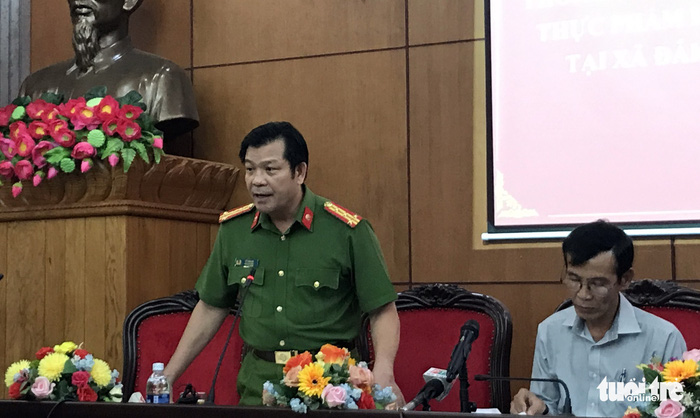As concerned consumers across Vietnam demand that those found producing ‘coffee’ from used batteries be met with justice, police are struggling to piece together evidence to determine where exactly the dirty coffee had been sold, and for what purpose.
A facility in the Central Highlands province of Dak Nong made headlines on Tuesday after police discovered that it had been producing coffee from dirty and harmful materials, including manganese dioxide taken from used D batteries.
The facility owner, Nguyen Thi Thanh Loan, admitted to having bought rejected coffee beans at a cheap price, ground and mixed them with ingredients such as dirt and rock dust, before using the ‘battery material’ to dye the mixture to produce finished products.
Police have seized more than 21.2 metric tons of ‘battery-dyed’ coffee, 40 liters of manganese dioxide mixture and 35 kilograms of used batteries during a raid.
Despite the owner’s confession and these pieces of physical evidence, police admit that there are not enough grounds yet to conclude the ‘coffee’ had been sold as food or drinks meant for human consumption, a crucial detail to determine the nature of the crime.
The facility went into operation in 2016 and has since the start of this year supplied over three tons of such dirty coffee to the market, according to Loan’s statement.
 |
| Tons of dirty coffee is discovered at a coffee production facility owned by Nguyen Thi Loan in Dak Nong Province in the Central Highlands region of Vietnam. Photo: Tuoi Tre |
Loan has previously confessed that the battery-dyed coffee is sold in plain, unlabeled packaging to clients in the southern province of Binh Phuoc.
The coffee appears to have been sourced by sidewalk coffee shops rather than available for retail.
Police are still investigating to see if the dirty coffee has been sold to any other locations, Le Vinh Quy, deputy police chief of Dak Nong, said at a press conference on Wednesday to publish initial findings on the scandal.
“We are currently focused on determining whether the coffee is sold as food or drinks,” Quy said.
“If this is the case, the owner will face criminal prosecution for food safety violations as per the Penal Code.”
However, Quy said the facility owner has been beating around the bush during police questioning, making it difficult for officers to determine the extent of their violations
Without proof or testimonial evidence from Loan that the ‘coffee’ is meant for human consumption, the alleged violators may get away with less serious charges or even administrative fines at best, Quy admitted.
 |
| Nguyen Thi Loan, the owner of a facility caught producing dirty coffee from used batteries in Dak Nong Province in the Central Highlands region of Vietnam. Photo: Tuoi Tre |
Samples of coffee produced at Loan’s facility had been taken by experts from the Dak Nong Department of Agriculture and Rural Development, and will be tested as soon as testimonies from the facility owner are in, according to Nguyen Van Chuong, a department official.
“If Loan says her products have been sold as food or drinks, we will carry out tests for its caffeine and toxicity levels,” Chuong said.
He added that authorities have not been able to rule out the possibility that the ‘coffee’ is meant to be used as fertilizers.
“If Loan says her products are sold as fertilizers, we will test for their nitrogen, phosphorus and potassium (NPK) values,” Chuong said.
The official added, however, that even this scenario will not save Loan from legal sanctions.
“Batteries are considered non-recyclable industrial waste, so it would still be against the law for Loan’s facility to use them in fertilizer production,” he explained.
Loan’s facility is only registered as a merchant of agricultural products, according to its business license issued on August 19, 2016.
However, since its launch the facility has only bought materials for use in the production of battery-dyed coffee such as rock dust, used batteries and rejected coffee beans, according to a local police chief.
Like us on Facebook or follow us on Twitter to get the latest news about Vietnam!























































